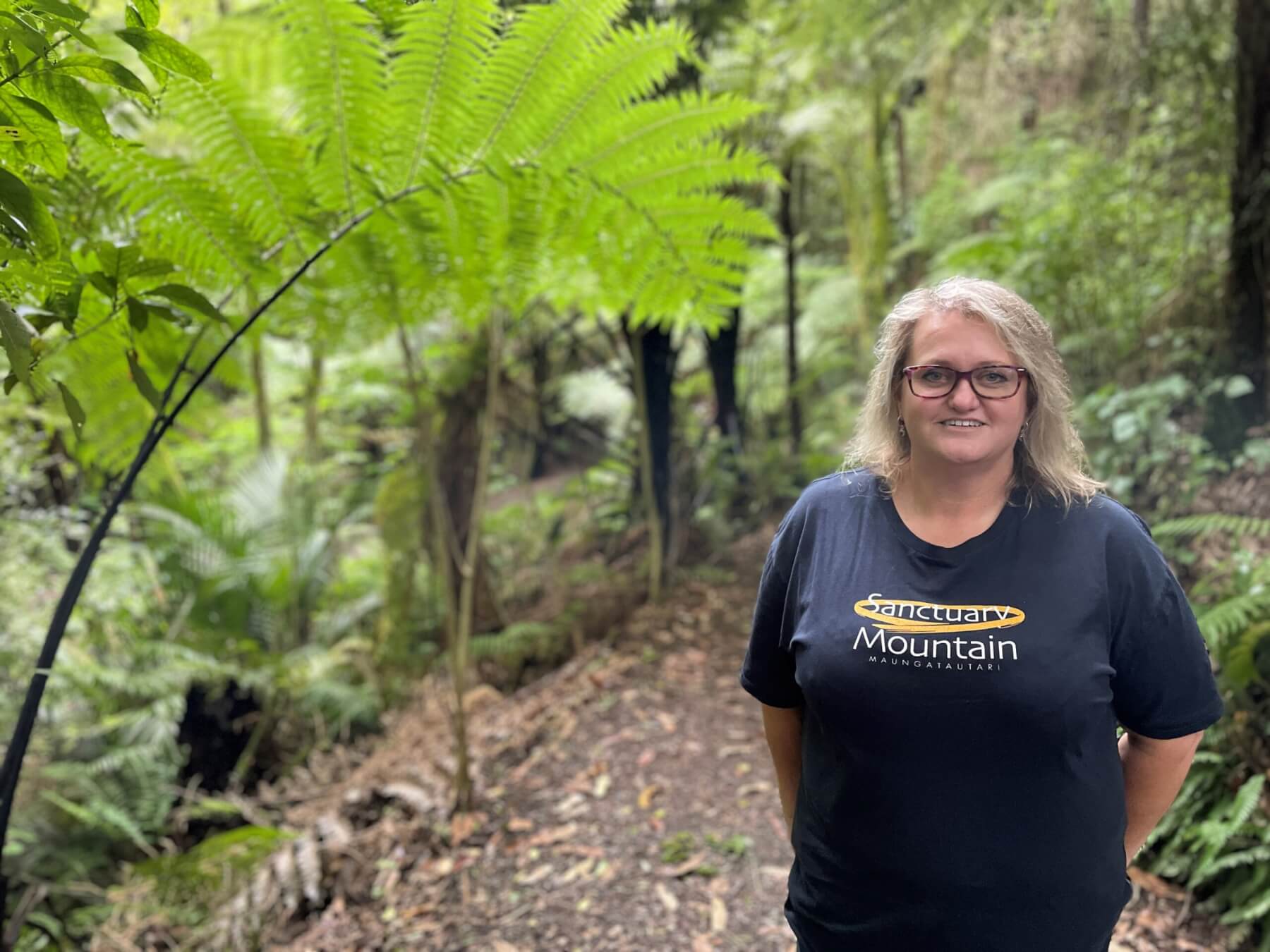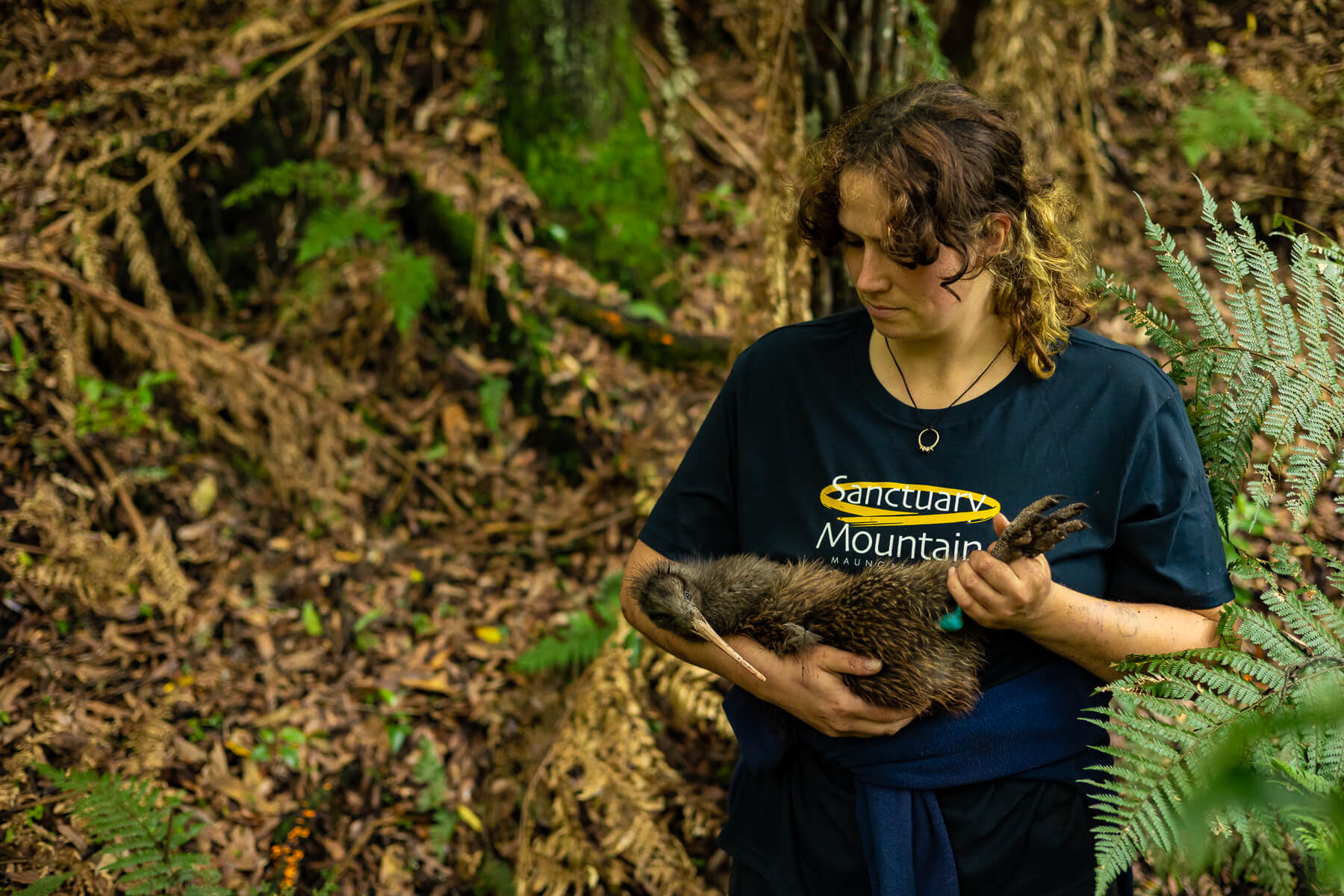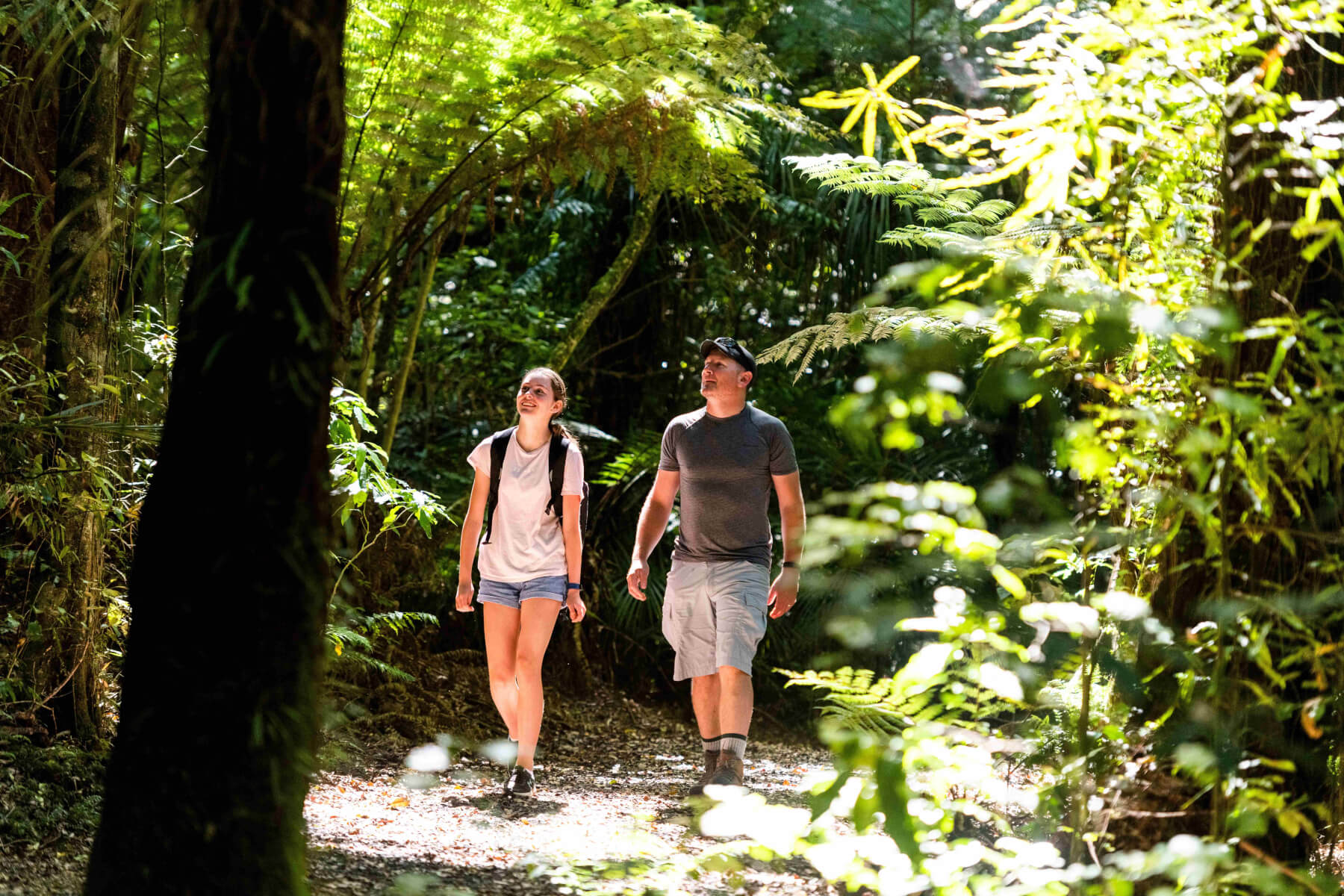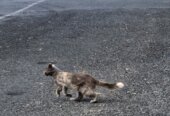Maungatautari Ecological Island Trust has let half of its mountain rangers go as Department of Conservation funding ended.

Helen Hughes at Maungatautari. Photo: Chris Gardner
Maungatautari Sanctuary Mountain general manager Helen Hughes told The News the trust had lost seven of the 13 mountain rangers the trust employed when she joined the organisation in October 2023. Their job is to protect the many endangered species living within the world’s largest predator proof enclosure near Cambridge with constant maintenance and monitoring of predator traps.
The 3400-hectare project costs $5000 a day to run and was set up to be joint funded by DOC, Waikato Regional Council and Waipā District Council.
“DOC Jobs 4 Nature funding has dried up, with that we have lost some staff, down to the minimum level, and we have to change the way we do things,” Hughes said.

Sanctuary Mountain Maungatautari
DOC provided $589,000 worth of Jobs 4 Nature funding over four years. “We are down to six rangers and a manager,” Hughes said.
She took solace in knowing the trust was not the only organisation going through such challenges.
Ranger Warwick Prewer, recently profiled in The News, kept his job after the trust found two months funding from elsewhere.
Meanwhile, the trust has raised enough funds to extend operation beyond the end of August until October with plans for collection days at branches of The Warehouse.
“We can see that we have got enough funding to get us there,” Hughes said.
“We have got funding for two months. We seem to be chasing two months. That seems to be what we are doing at the moment.”

Sanctuary Mountain Maungatautari. Photo: Hamilton and Waikato Tourism.
Hughes is applying for grants from the Waikato’s philanthropic organisations and the National Lottery as well as having conversations with potential sponsors.
“The DV Bryant Trust confirmed we are getting $20,000, which is wonderful,” she said.
Discussions are also underway with Waikato Regional Council for further funding.
“We are just waiting on others, it’s quite a long process. There’s lots of irons in the fire.”
Hughes is hopeful DOC will continue to support the project after welcoming representatives of the government department to the trust’s August board meeting last week.
“They are going through a strategic review themselves and that’s going to take time,” she said. “That’s a challenge for us as well.”
As well as the Jobs 4 Nature funding, DOC has also supported Maungatautari over the last four years with $441,000 worth of threatened species monitoring funding, such as kākāpō and hihi (stitch bird), and $140,000 worth of operating costs funding.

Mike Montgomerie
Waipā District Council Maungatautari ward councillor and former trustee Mike Montgomerie was not surprised to hear of the project’s cash flow crisis since it was much larger and more complex than the early days when he served on the trust.
“I am well aware of the financial issues of running the project. The nature of the project means it’s always relying on donations. It’s always been a challenge,” he said.
“I’m watching it with a great deal of interest,” he said. “I really want it to survive and thrive. It is a great project.”
Maungatautari was recognised as a reserve in 1912. The Maungatautari Ecological Island Trust was formed in 2001. Building of the predator proof fence began in 2002 and by 2004 all mammals were eradicated from the two enclosures. A record 20,000 visitors came to Maungatautari in the last year, including 4000 school students.








